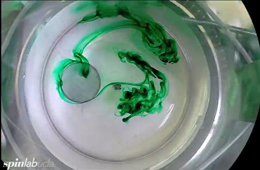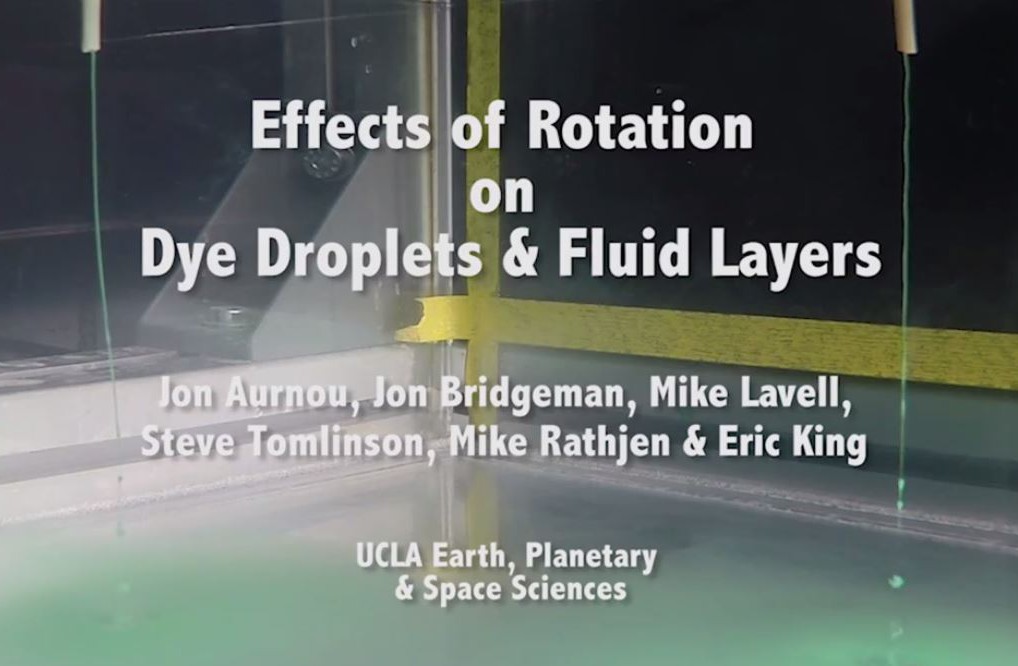Laboratory experiments showing the formation of a Taylor column, which is one of the canonical of rapidly rotating fluid dynamics as exists in many geophysical settings.
SPINLab Educational Project – Falling droplets in rotating tank
Scott Sheppard – Neptune Trojans
Scott Sheppard explains how he uses powerful telescopes to detect distant asteroids sharing the orbit of Neptune
Jean-Luc Margot – Radar Astronomy and the Asteroid Impact Hazard
UCLA Professor Jean-Luc Margot explains how radar astronomy drastically improves the ability for humans to predict and mitigate asteroid impact hazards.
For more information about the UCLA’s Radar Astronomy Group, please visit: http://radarastronomy.org
Explore Your Universe 2012
Visit UCLA for a day of hands-on science activities!
David Paige – Ice and the Origins of Life
David Paige explains why studying ice on Mercury is important for understanding the origins of life on Earth and the habitability of extrasolar planets.
David Paige – Mercury Organics Brought By Comets
David Paige explains how organic material brought to Mercury by comets creates a dark crust over subsurface ice in permanently shadowed regions.
David Paige – Water Ice on Mercury
David Paige explains how he uses a thermal model of Mercury to locate surface and subsurface ice in the north polar region.
Planetary Profiles – Pedro Lacerda
Guest interview with astronomer Pedro Lacerda
Planetary Insights – Small Bodies
Guest astronomer Pedro Lacerda describes his work into small bodies


